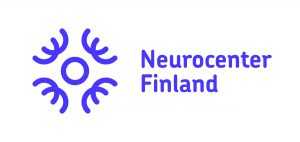A pilot project for compilation of rare neurological diseases in a single national database

This project developed by Neurocenter Finland will create an electronic register for rare diseases in collaboration with three research groups.
Experts in rare neurological diseases at North Karelia Central Hospital, Oulu University Hospital and Helsinki University Central Hospital have joined forces for a pilot project aimed at creating an electronic register for the most commonly occurring rare diseases in Finland.
“Clinically, rare diseases differ greatly from each other, but the diagnostic and therapeutic problems are often similar,” explains the project leader, Professor Kari Majamaa from the University of Oulu.
When there are few cases, they are difficult to identify, and the expertise of an individual medical unit inevitably remains tenuous.
“Conducting academic research on rare diseases can be definitively facilitated when patient data on various diseases are compiled from all over the country in one place,” Majamaa sums up.
The project is one of the six pilots by Neurocenter Finland funded by the Ministry of Social Affairs and Health, where new cooperation models and ways of working to promote neuroscience in Finland are being tested.
Expertise from all over the country in one place
Huntington’s disease and motor neuron diseases are the main targets for the creation and piloting of the registry. The disseminated expertise for these different types of rare diseases can be pooled together with this project. In Oulu, in addition to Majamaa, the pilot group includes researcher Hanna Ansakorpi, and in Joensuu, the project is led by the country’s leading Huntington’s disease expert Jussi Sipilä. In the Helsinki group, Emil Ylikallio and Mari Auranen are responsible for motor neuron diseases.
Both Huntington’s disease and motor neuron diseases affect only about 1000 to 2000 people nationwide. Indeed, the only common denominator for rare diseases is actually low prevalence, which has been one of the key challenges in data collection.
“In order for the registry to serve the widest possible range of different types of diseases, irrespective of whether they are brain, nerve or muscle diseases, the data collected cannot be highly disease-specific,” Majamaa emphasizes.
“At the moment, we already have a reasonably good perspective of the information and content that is suitable for the register.”
Thanks to Neurocenter Finland, all the necessary resources for robust cooperation could be concentrated on the creation of the single national register, and no separate disease-specific registers were set up in different parts of Finland. Without the help and funding offered by Neurocenter Finland, this whole project would not have been born,” Majamaa says.
Information in a single place for many applications
The register collects information about the demographic data of patients, the hospital district they live in, and their medical history. In addition, subjective information about their functioning and quality of life is collected from the patients themselves. Disclosure of information from patients is always voluntary.
“We have found a good compromise that serves the needs of both clinical and scientific research. In addition, the needs of drug development have also been taken into account,” says Majamaa.
In recent years, significant progress has been made in the treatment of hereditary diseases. The important change is the transition from symptomatic treatment to drugs that target the disease’s mechanisms of action; this has already begun. When there are only a few patients to begin with, it is crucial to have all the necessary patient information available.
“Especially in the case of rare diseases, it is valuable to have all the possible information about patients in a single place,” says Majamaa.
Neurocenter Finland has played a crucial role in this registry project.
“Thanks to Neurocenter Finland, all the necessary resources for robust cooperation could be concentrated on the creation of the single national register, and no separate disease-specific registers were set up in different parts of Finland. Without the help and funding offered by Neurocenter Finland, this whole project would not have been born,” Majamaa says.
The beta version of the registry will be available for testing in the coming winter.
